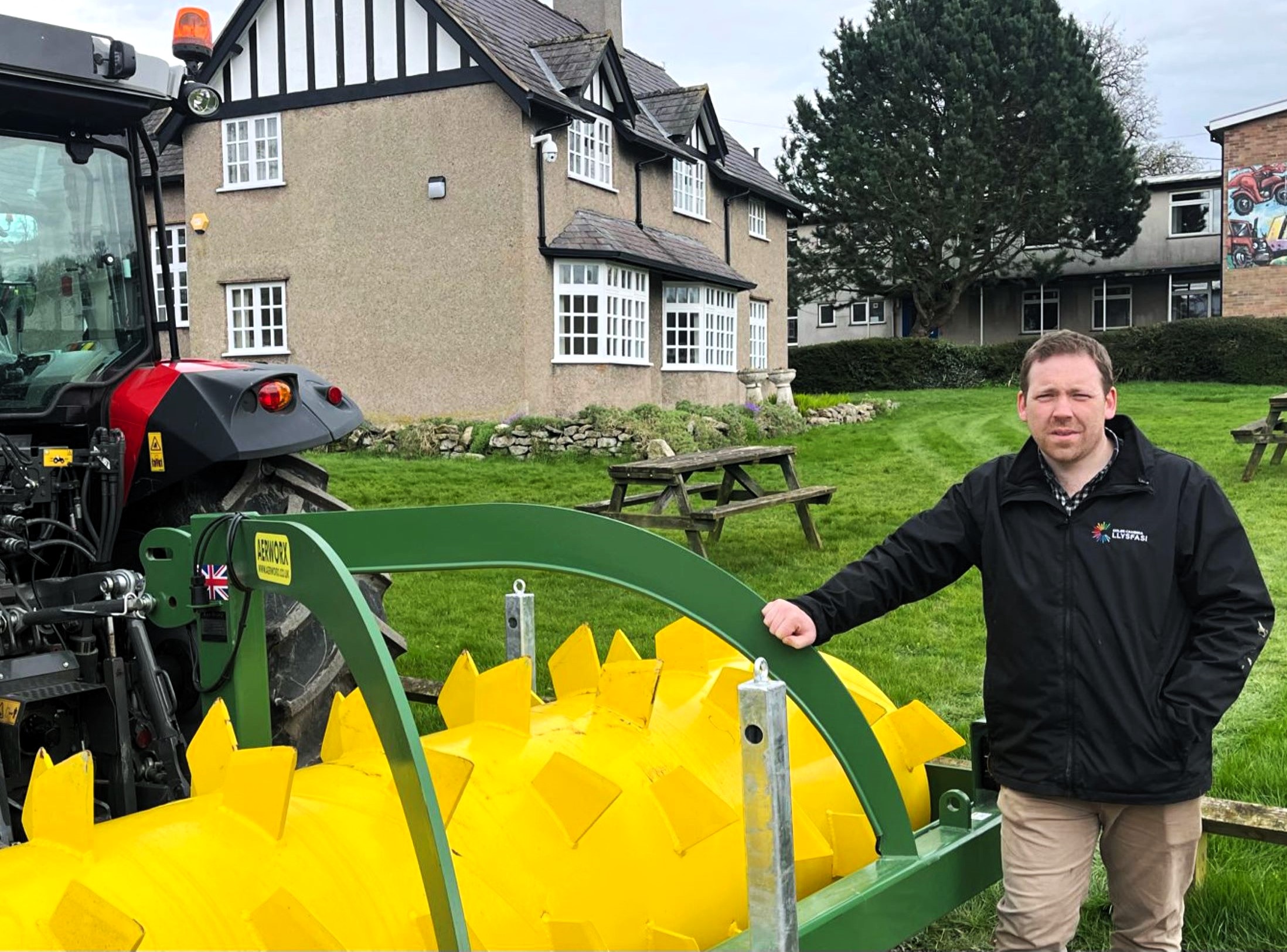SIGNIFICANT investment in technology is driving advances in precision agriculture and student numbers at a leading land-based college.
New machinery and equipment coincided with a surge in learners at Coleg Cambria’s Llysfasi campus, with enrolment up by more than 80% this academic year.
These developments come as work continues on a £10m redevelopment project at the Denbighshire site, featuring a state-of-the-art, 1095 square metre carbon-neutral education complex that will open in September and include classroom and meeting spaces, a coffee shop, HE centre, wellbeing hub and more.
With a funding contribution from the Welsh Government Small Grants Efficiency capital scheme – designed to increase on-farm investment, technical performance and enhance the use of innovation in agriculture – the college purchased more than £80,000 of machinery including an automatic calf feeder, automatic cattle weighing machine, and an automatic sheep handling and drenching system.
Head of Llysfasi Elin Roberts said this series of improvements and focus on the quality of agricultural academic programmes has led to a wave of positivity among learners and staff.
“Our courses in Agriculture, Agricultural Engineering and Forestry and Countryside Management have been particularly successful, with a rise of more than 80% students this year,” she said.
“The technology has helped meet the extra demand and also aligns with the raft of net zero initiatives unveiled here in past years such as the biofactory, which has been supporting farmers in reducing greenhouse gas emissions.”
Curriculum Director Joe Mault says the college’s position as a pioneer in net zero farming will benefit both the farming community and learners as the industry becomes more sustainable.
Hailing from Bryneglwys, the former NFU adviser and ex-player of Ruthin RFC (Rugby Football Club) is enjoying the role and says it’s an exciting time to have joined the college as it takes its place at the forefront of precision agriculture in Wales.
“These new automatic and electronic systems are vital to the sector and mean we can monitor animals even more closely, which will inevitably lead to financial savings as we can pinpoint areas and be more detailed, rather than taking a more blanket approach to things like drenching,” he added.
“That will make a big difference to farmers in the future and gives our learners the most up to date experience with state-of-the-art technology that will play a major role in achieving net zero targets, here and nationwide.”
Visit www.cambria.ac.uk for more news and information from Coleg Cambria Llysfasi.


